Climate
-
 Animals
AnimalsKangaroo farts: Not so ‘green’ after all?
Scientists had thought that kangaroo farts were environmentally friendly because they had little methane. That may not always be true.
-
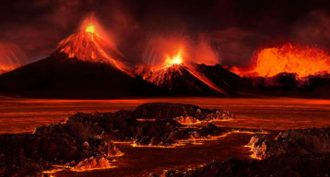 Fossils
FossilsClues to the Great Dying
Millions of years ago, nearly all life on Earth vanished. Scientists are now starting to figure out what happened.
By Beth Geiger -
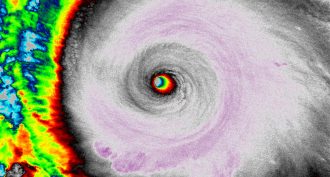 Climate
ClimatePicture This: Biggest hurricane in the West
The hurricane that’s storming into western Mexico has had higher sustained winds than any seen in the Western Hemisphere. It’s also got the lowest atmospheric pressure, making it a monster storm.
By Janet Raloff -
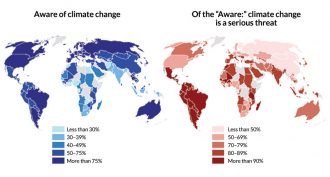 Climate
ClimateBeliefs about global warming vary by country
Opinions about climate change — whether it exists, what’s causing it and how dangerous it is — vary greatly around the world.
-
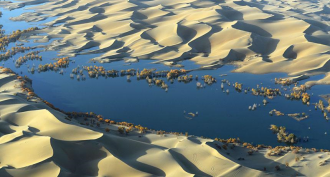 Earth
EarthCarbon ‘sponge’ found beneath desert
Watering farmlands in arid parts of the world could have long-term climate benefits, a new study concludes.
-
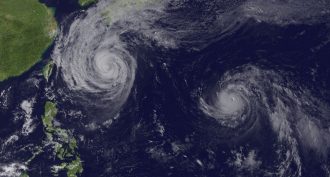 Climate
ClimateNew El Niño coming on strong
The current El Niño event could be a record breaker, changing weather patterns worldwide and bringing rain to drought-parched California.
-
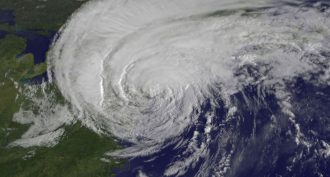 Climate
ClimateScientists Say: Cyclone
These strong storms have different names in different oceans. But all are cyclones.
-
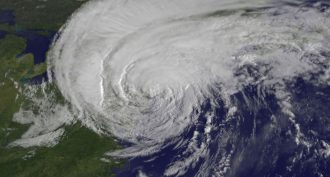 Climate
ClimateScientists Say: Hurricane or typhoon?
Sometimes you read about hurricanes, and sometimes about typhoons. The difference? Location, location, location.
-
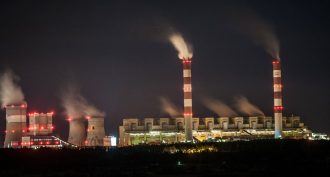 Environment
EnvironmentThe heat that keeps on giving
Burning fossil fuels generates heat and carbon dioxide. That pulse of heat is quickly exceeded by the warmth that carbon dioxide traps in Earth’s atmosphere.
By Beth Geiger -
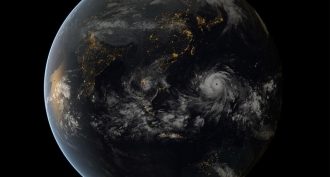 Climate
ClimatePacific hurricanes to strengthen as Earth warms
Global warming is heating up the oceans. That is causing waters to warm. As a result, Pacific storms — called typhoons — will become more destructive.
-
 Oceans
OceansCarbon dioxide levels rise fast and high
The buildup of carbon dioxide in the atmosphere is rising faster than at any time since dinosaurs roamed the Earth. The burning of fossil fuels is largely to blame.
-
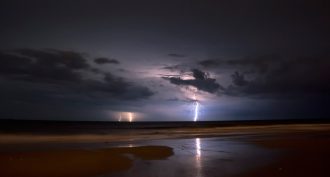 Physics
PhysicsScientists ‘see’ thunder for first time
Scientists have captured the first image of thunder. The map shows the relative strengths of the sound waves emanating from the loud clap.